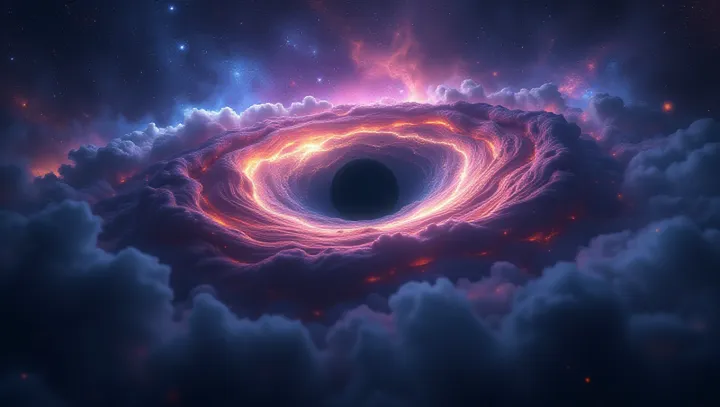Black Holes: Crucibles of Life?
San Francisco - A groundbreaking scientific theory has emerged, suggesting that black holes, long perceived as mere cosmic voids, may play an instrumental role in the emergence of life. According to researchers, these enigmatic entities, known for their gravitational prowess, could indirectly incubate life by generating chemical environments conducive to biological processes. Traditionally viewed as destructive forces, black holes are now being reevaluated by scientists at the University of California, San Francisco. The high-energy particle jets emitted from the vicinity of black holes may catalyze reactions necessary for life's chemical building blocks. Notably, these reactions could create complex organic molecules, thus hinting at a broader cosmic role for black holes in life's evolution. Dr. Amelia Harper, an astrophysicist at the university, elaborates: 'Our findings open a fresh dialogue on the potential life-fostering capabilities inherent in black holes' radiation zones.' This revelation challenges longstanding notions and shines a light on the sophisticated celestial processes at play beyond our immediate stellar neighborhood. The intricacies of these processes underscore the diverse and dynamic nature of cosmic phenomena, urging a reexamination of our understanding of the universe's ability to harbor life. While the research is still nascent, it provides compelling evidence that black holes could very well be essential, albeit indirectly, in life's cosmic ballet.

San Francisco - A groundbreaking scientific theory has emerged, suggesting that black holes, long perceived as mere cosmic voids, may play an instrumental role in the emergence of life. According to researchers, these enigmatic entities, known for their gravitational prowess, could indirectly incubate life by generating chemical environments conducive to biological processes. Traditionally viewed as destructive forces, black holes are now being reevaluated by scientists at the University of California, San Francisco.
The high-energy particle jets emitted from the vicinity of black holes may catalyze reactions necessary for life's chemical building blocks. Notably, these reactions could create complex organic molecules, thus hinting at a broader cosmic role for black holes in life's evolution. Dr.
Amelia Harper, an astrophysicist at the university, elaborates: 'Our findings open a fresh dialogue on the potential life-fostering capabilities inherent in black holes' radiation zones.' This revelation challenges longstanding notions and shines a light on the sophisticated celestial processes at play beyond our immediate stellar neighborhood. The intricacies of these processes underscore the diverse and dynamic nature of cosmic phenomena, urging a reexamination of our understanding of the universe's ability to harbor life. While the research is still nascent, it provides compelling evidence that black holes could very well be essential, albeit indirectly, in life's cosmic ballet.







